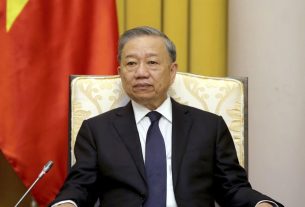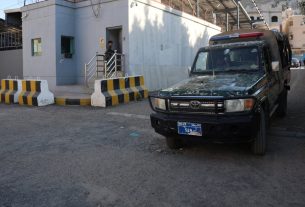Human Rights Watch (HRW) has called on Beijing to immediately release Taiwanese publisher Li Yanhe—known by his pen name Fu Cha—following his secret sentencing in China earlier this year. Detained since March 2023, Li’s case has raised serious concerns over freedom of expression, the rule of law, and China’s broader crackdown on dissent, particularly among Chinese-speaking writers beyond its borders.
Li is the editor-in-chief of Gusa Publishing, a Taiwan-based press known for publishing works critical of the Chinese Communist Party (CCP), including censored subjects such as the Tiananmen Square massacre and human rights abuses in Xinjiang. Originally from China, he moved to Taiwan in 2009 and obtained Taiwanese citizenship in 2023. During a visit to Shanghai that year—necessary to cancel his Chinese household registration—he was detained by Chinese police on charges of “inciting secession.”
For nearly two years, Chinese authorities released no official information on Li’s whereabouts or legal status. In March 2025, officials confirmed he had been secretly sentenced the previous month, claiming he received a fair and “open trial.” However, no court documents or evidence of due process have been made public. Chinese officials cited “respect for the family’s wishes” when refusing further details—an explanation critics deem dubious, given allegations of threats made against Li’s family to ensure their silence. (The Guardian)
HRW stated on April 7, 2025, that the case exemplifies “transnational repression”, where governments target critics even beyond their borders. The group called on China to grant Li access to legal counsel and family and to meet its obligations under international human rights law. (HRW Press Release, 2025)
Parallels to Previous Crackdowns
Li’s ordeal echoes the 2015 abduction of five Hong Kong booksellers, including Lam Wing-kee, detained for selling banned political books. In comments published by the South China Morning Post, Lam said, “From the perspective of mainland China, they believe you’re from where you were born. Li published books in Taiwan that violated the laws of his own country.” (SCMP)
Broader Context: Rising Pressure on Taiwanese Citizens
According to Taiwan’s Mainland Affairs Council, at least 15 Taiwanese nationals have been detained or tried in China since July 2024, and 51 more have reportedly faced interrogation at Chinese border crossings. This uptick follows amendments to China’s Anti-Espionage Law and Law on Guarding State Secrets, which analysts say are being used to intimidate journalists, publishers, and writers across Chinese-speaking communities globally.
Diplomatic Deadlock
Taiwan has condemned the lack of transparency in Li’s case but is unable to intervene directly. China does not recognize dual nationality and refuses Taipei’s requests for consular access.
As international rights advocates continue to pressure Beijing, Li’s detention remains a stark warning to critics of the CCP—regardless of where they reside. The incident underscores ongoing efforts by China to extend its censorship and coercion beyond its borders, targeting those who publish or speak out against the regime in broad constrast to international human right laws.
Sources:
- Human Rights Watch, HRW.org
- The Guardian, “Fears grow for Taiwan book publisher believed held in China”
- Committee to Protect Journalists, cpj.org
- South China Morning Post
- Taiwan Mainland Affairs Council, 2025 Press Briefing

